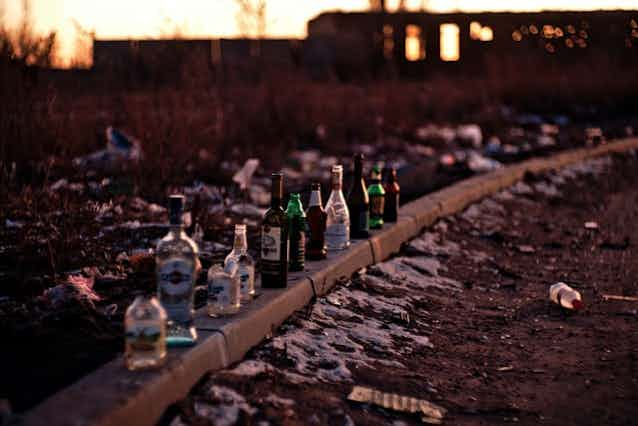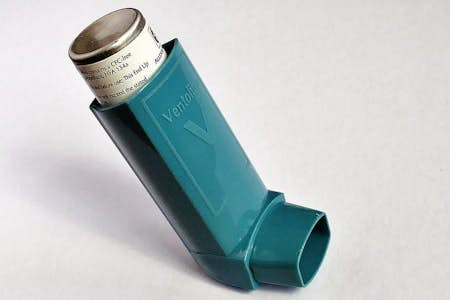We all probably know that binge drinking is loosely defined as consuming a large quantity of alcohol in a short space of time.
The general "aim" of binge drinking is to drink to get drunk rather than for the taste or enjoyment of the milder effects of alcohol.
Data shows that binge drinking has surged in popularity across the last 20 to 30 years, especially amongst younger people.
Chronic drinking has been much more deeply researched than binge drinking. Recent binge drinking studies have discovered that drinking in this way affects the body in different ways to chronic drinking.
That said, excessive binge drinking is also associated with the same harmful effects of any form of alcoholism.
In many ways, binge drinking has emerged as a unique form of alcoholism. Many people consume more than a week's worth of alcohol in just one day, often in a few hours, but are simply unaware of potential consequences.
Binge drinking has become normalised by the working week - by the promise of the weekend and the desire for letting our hair down in a social, alcohol-fuelled environment.
But what are the costs of our emerging binge-drinking culture? How harmful are the effects of binge drinking, and how can we stop binge drinking to prevent alcohol-related harm and disease?
What is binge drinking?
The current NHS alcohol guidelines for men and women in the UK are to avoid drinking more than 14 units of alcohol a week, equivalent to 6 pints of average strength beer or lager or ten small glasses of wine.
The NHS advises that those drinking somewhere near the maximum recommended 14 units a week should spread their drinking over at least three days, taking regular time off to let the liver metabolise any excess alcohol.
If excessive alcohol consumption is defined as consuming more than 14 units on any given week, what is binge drinking?
In the UK, the definition of binge drinking seems somewhat vague. The NHS definition of binge drinking suggests that it involves consuming more than eight units in one session for men and six units in one session for women. However, what constitutes 'one session' is unspecified. For example, a session could be an entire Friday or Saturday night at the pub, or it could be a couple of hours.
The government’s Alcohol Strategy defines binge drinking as when males consume at least eight units on their heaviest drinking day and when females consume six units on their heaviest drinking day.
The US definition of binge drinking seems more straightforward - it's defined as a blood alcohol concentration (BAC) to 0.08 g/dl or above, which typically happens when men consume five or more drinks or women consume four or more drinks within two hours. "A drink" in US terms is broadly equivalent to a unit in UK terms.
How common is binge drinking?
According to the ONS, 56.9% of the UK population consume alcohol. 7.8 million binge on their heaviest drinking day.
Whilst younger people aged between 16 and 24 were less likely to consume alcohol regularly than other age groups, they were the most likely age group to binge drink.
The dangers of binge drinking
In 2020, alcohol-specific deaths reached their highest figure for 20 years in England in Wales, killing over 7000 people across nine months. According to NHS data, some 358,000 hospital admissions in the UK each year are alcohol-specific, and many more are likely alcohol-related.
A recent article by The Guardian highlighted the tremendous cost of alcoholism on the NHS. As many as 1 in 10 hospital beds may be occupied by someone enduring alcohol-related disease or dependence at peak times.
Read our article on the toll alcohol abuse takes on the NHS and other health services.
Alcoholism is still often viewed as a hidden disease that only affects the heaviest, chronic drinkers, but this isn’t true.
The terrible toll of liver disease has been scrutinised in recent years. It's one of the significant causes of mortality that seems to be steadily rising, especially in young adults. It now rates as the third most likely disease to cause premature death and has been described as a silent killer of younger and middle-aged people, often when individuals are largely unaware of their excessive alcohol consumption.
In fact, doctor’s anecdotes frequently report the shock of patients who receive a liver disease diagnosis.
Albert Do, MD, director of the Yale Medicine Fatty Liver Disease Program told Yale Medicine that he is repeatedly seeing permanent liver damage affecting younger people; “the scary thing is that they're only in their 30s and 40s”.
Binge drinking effects: what does binge drinking do to your body?
The effects of alcohol are not confined to the liver. Alcohol affects practically every organ in the body, but its most potent effects impact the brain and nervous system, heart, liver and pancreas.
Alcohol is not just a powerful drug, it is a potent toxin, especially when it begins to metabolise and break down in the body.
The effects of binge drinking occur quickly, starting with all the standard effects that drinkers are aware of:
- Loss of inhibition
- Malcoordination
- Slurred speech
- Confusion
- Memory loss
- Changes in mood
These short-term effects kick in rapidly after the first unit or two is consumed. Each unit you consume is metabolised in around an hour. If you continue to drink at a quicker rate than your body can metabolise alcohol, you’re moving into binge drinking territory.
The longer-term impacts of drinking begin when the liver is unable to filter and metabolise excess alcohol. This is when the liver and other organs experience increased stress.
Excessive drinking causes the following symptoms, which are also signs of more severe alcohol poisoning:
- Vomiting
- Seizures
- Inability to stay awake
- Fainting and blacking out
- Slow heart rate
- Low body temperature
- Impaired gag reflex, increasing the chance of choking on vomit
Severe alcohol poisoning can be lethal if primary care is not administered quickly. Half of all people who consume between 1 and 1.5 litres of spirits in one short session die.
For people that weigh less than 60kg, the LD50 of alcohol (the limit at which half of all people die) is around 13 shots.
With increased short-term alcohol consumption also comes increased short-term alcohol-related risks, including accidents, self-harm and suicide.
Suicide and binge drinking has a long-established connection.
Binge drinking is also more likely to interfere with prescription and OTC medicines.
Does binge drinking cause liver disease?
Liver disease is the leading cause of alcohol-related death, though it is by no means the only one.
Many people believe that binge drinking protects them from the long-term effects of chronic liver disease. There are mixed messages and conflicting evidence surrounding this. However, a growing body of evidence shows that even relatively infrequent binge drinking can damage the liver, sometimes permanently.
Some studies, like this study by the University of Southampton, found that chronic, daily drinking still poses a much greater risk for liver disease than binge or episodic drinking. The authors contest that binge drinking poses a greater risk for developing liver disease when it transforms into a more long-term, daily habit.
However, another study by the University of California found contrasting results. Their study showed that even a small number of binge drinking sessions causes the signs of early-onset liver disease.
Researchers at Yale University suggest that binge drinking certainly poses risks for liver disease and highlights how binge drinking is more strongly associated with other health problems than chronic drinking.
In short, it’s safe to assume that binge drinking does indeed cause liver damage, not just in older individuals and chronic drinkers but in younger and infrequent drinkers.
Binge drinking and cancer
Alcohol consumption is linked to the increased risk of developing at least seven different types of cancer. Cancer Research UK states quite simply, "If you drink alcohol, you are more likely to get cancer than if you don't."
Yale found that the liver cancer rate doubled amongst millenials in 2018, while alcohol-related cancers seem to be on the increase in the UK, US and throughout Europe.
Excessive alcohol consumption causes inflammation but also affects cells in the mouth, stomach and throat and increases insulin and estrogen levels, all of which increase the risk of various types of cancer.
Brain damage and binge drinking
Alcohol can cause brain damage over time. Regular binge drinking is shown to decrease grey matter in the brain, even causing certain neural pathways and brain structures to shrink.
The effects of this are worse when we’re younger - the development of teenager’s brains can be stunted dramatically by regular episodes of binge drinking.
Binge drinking has been linked to an increased risk of stroke, Alzheimer’s and alcohol-related brain damage (ARBD).
ARBD most commonly affects people in their 40s and 50s and is frequently linked to extreme alcohol consumption exceeding 25 units a week. It can drastically increase the risk of many neurological diseases.
Binge drinking and the immune system
Binge drinking can dramatically affect the concentrations of immune cells like white blood cells in the blood. This has been linked with an increased risk of infections post-drinking, including coronavirus.
Dr Afshar, a pulmonologist at Loyola University Chicago, found that the recovery time of victims of traumatic accidents was vastly reduced in those who had been drinking compared to those that hadn’t.
Traumatic injuries and crime under the influence
Perhaps some of the most powerful drinking-related A&E anecdotes revolve around the types of traumatic injuries sustained during binge drinking sessions. These range from drownings to burns, crashes, falls, injuries from tools and machinery, blunt impacts and even gunshot wounds.
In the US, some one-third of traumatic injuries are suffered by those with alcohol in their system. Binge drinkers are much more likely to die from traumatic injuries.
Additionally, alcohol consumption makes wounds harder to treat due to increased bleeding and impaired immune function.
Binge drinking and crime
Binge drinking is heavily linked to increases in various crimes ranging from domestic violence and abuse to road traffic crimes, violent crimes, burglary, theft and antisocial behaviour.
This study, published in the Journal of Crime, Behavior and Mental Health, found that individuals who got drunk at least once a week were more than five times more likely to be involved in violent crime.
Binge drinking is heavily associated with traumatic brain injuries resulting from fighting or combat-related crimes.
How to stop binge drinking
Apart from seeking help from a doctor or charity who can refer people to drug and alcohol counselling and rehabilitation services, the key to beating binge drinking is raising awareness.
The culture of working hard in the week and playing hard at the weekend has helped create generations of heavy binge drinkers that contribute to those with chronic forms of alcoholism.
Janey Lee Grace, author of Happy Healthy Sober, told Health Times: "Alcohol is so ingrained in our culture. From playdates, parties, weddings, fresher’s week, funerals – from celebrations to commiserations, alcohol is the ‘social glue’ that sticks everything together.
"We have been brainwashed into thinking we are either ‘good drinkers’ or alcoholic losers. In truth it’s a spectrum, there are many ‘grey area drinkers’ I’d suggest there are at least 50 shades of grey – but sadly not so sexy!
"Let's not sugar coat it, alcohol is responsible for 200 different illnesses, including cancer and whether binge drinking or daily drinking there are zero benefits – ever. You’ve heard the phrase: ‘Alcohol is the only drug you have to justify not taking.’ When you stop smoking everyone says ‘well done!’ But if you stop drinking, people tend to look concerned and ask if you ‘have a problem’.
"When I finally quit my nightly habit, I found that rather than giving something up, I was gaining my life back. I’m 4.5 years sober and my only regret is not ditching the booze sooner.
"The question to ask yourself is ‘Could my life be better physically and emotionally without the booze? If the answer is yes, then commit to a challenge, but during it focus only on what you are gaining, and get connected with like-minded people, it’s tough to go it alone."
Just because someone only drinks one day a week doesn’t protect them from the short-term and long-term effects of alcohol. Once binge drinking becomes more regular, it can quickly spiral into a severe alcohol problem that brings forth the worst of both binge drinking and chronic drinking.
Instead of binge drinking alcohol, aim to replace alcohol-centric socialisation with something more wholesome and preferably active.
Read our guides on how to stay active and how to replace alcohol with other healthier lifestyle choices.






